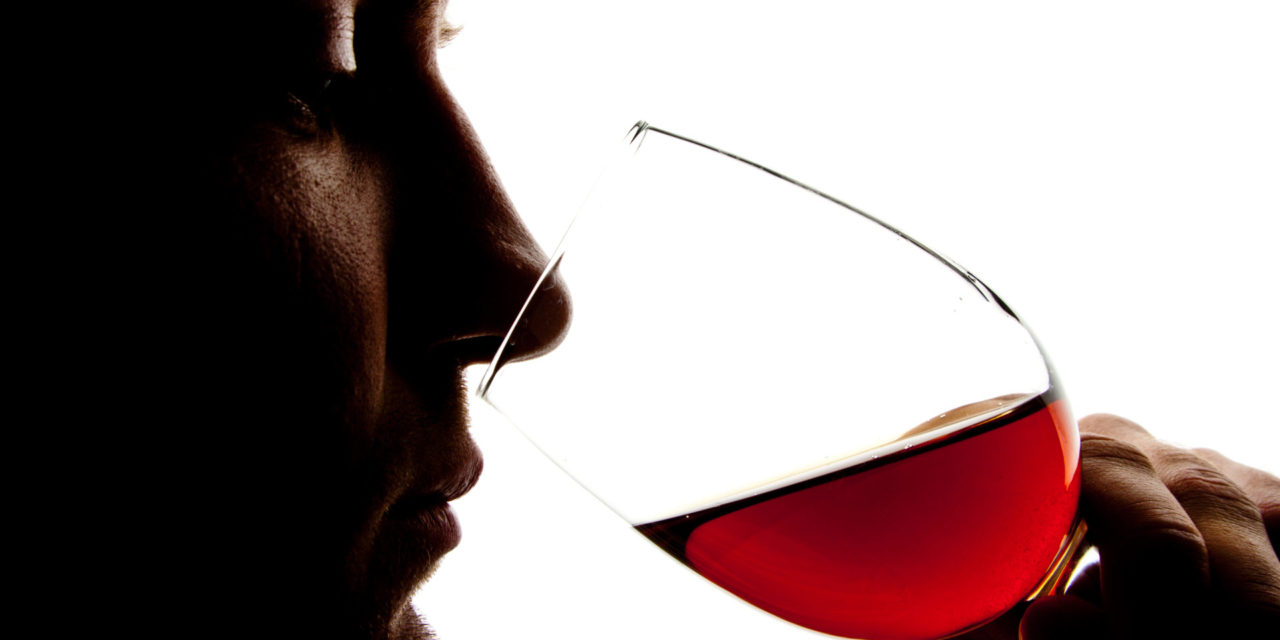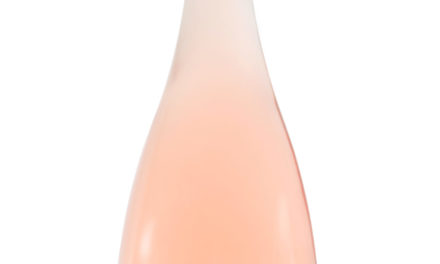If a public speaker lost their voice or a musician could no longer carry a tune, what would happen? It almost goes without saying they’d be out of a job—and, with that, many would likely lose a lot more. That’s exactly what many sommeliers, producers, and critics, who make their living tasting and judging wine, beer, and spirits—are facing during the coronavirus pandemic.
Anosmia, the temporary loss of smell (and, often, taste), is a better indicator of coronavirus than more physically evident symptoms like fever and cough, according to studies. It’s also the main neurological symptom of the disease, and though the underlying mechanism that causes anismia isn’t known, neuroscientists at Harvard Medical School have identified the olfactory cells that are most vulnerable to infection. They’ve further discovered that, because the effected cells are typically not olfactory neural circuits themselves (but rather the cells that support them), the damage caused by COVID-19 isn’t necessarily permanent. (If COVID-19 were affecting the neural circuits directly , the damage would be permanent.)
But case reports show that between 34 and 98 percent of hospitalized patients with COVID-19 experience anosmia, a massive range that hints at how little is yet understood about the disorder, its effect, and its potentially far-reaching consequences.
We reached out to several beverage industry professionals who have recovered, or are in the process of recovering, from anosmia. Please read on for their stories.
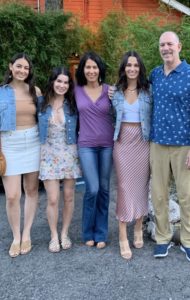
Lisa Denning and her family
‘It hit each of us differently’
Lisa Denning is a staff writer at Grape Collective and a wine critic at her award-winning blog, The Wine Chef.
As New York City prepared to shut down in March, Denning did what she thought was best for her family: She stocked up on food and supplies and prepared to hunker down with her husband, Joel, and two of their daughters, Gabrielle and Jolie, in their Upper West Side apartment.
After waiting an hour in-store to buy groceries, she made a beautiful meal and paired it with a Montecucco red from the Poggio al Gello winery in Italy. She tasted the earth, fruit, and flowers; bold tannins, and bright energy. The next morning, March 19, she woke up with a fever. On March 20, she lost her sense of smell and taste.
“It hit each of us differently,” Denning recalls of her family’s battle with COVID-19. “Joel lost 10 pounds in three days. I had a fever for 10 days. Gabrielle had a terrible sore throat, but Jolie’s only symptom was a loss of her sense of smell and taste.”
Their recoveries were different, too. As soon as the delirium of Denning’s fever lifted, a desperate determination to claw back her senses set in. “Because this virus is so new, we still don’t really know what we’re dealing with,” Denning says. “I joined a Facebook group for people with anosmia, and I began trying to jumpstart my senses.”
Every day, she would set out essential oils, and spend time sniffing each one and picturing herself in fields of flowers, recalling what those flowers smelled like in real life. She smelled blue cheese, coffee grinds, fruit rinds; she spent hours going through her home bar and smelling gins, grappas, whiskeys. Denning made elaborate meals for her family, and they’d sit down and try to appreciate the texture of roasted scallops while recalling and discussing what they should be tasting.
“After 11 days, I noticed I could detect the scent of coffee grinds,” Denning says. The next day, her sense of taste began to creep back in. But the recovery has been slow and involved many setbacks.
Wine, for example, didn’t taste like itself for weeks, and even now, she questions herself. “I think I’m at 100 percent finally,” she says. “But then if a wine tastes bland, I second-guess myself: Is it me? Or is it the wine?”
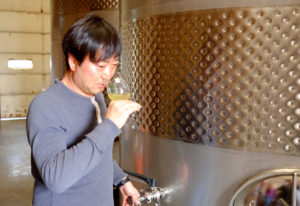
Peter Yi
‘I never lost it completely’
Peter Yi, founder of Brooklyn Cider House and owner of Twin Star Orchards, lives in Brooklyn. He was felled by the virus in March, but the impact on his smell and taste was less severe than the effect it had on his bottom line. While his orchard and cidery upstate in New Paltz is still up and running, and his cider is available in stores and online, the NYC shutdown and social distancing rules forced him to close his buzzy, popular Bushwick ciderhouse permanently. (He does hold out hope to open it in the future when it’s safe to socialize again).
Understandably, his focus—when he wasn’t fighting the virus—was on his company’s survival. “My sense of smell and taste was diminished by about 50 percent, but I never lost it completely,” he says. “It lasted about a week, and returned to normal very suddenly.”
‘It’s not just my job’

Brent Noll
In June, coronavirus clobbered Brent Noll, sommelier and general manager of Waterbar in San Diego, Calif., landing him in bed with aches, a fever, and throat-swelling hives. He didn’t lose his sense of smell or taste until about 10 days in.
“I hadn’t been eating much, so I didn’t realize how severe it was until I was cleared to go back to work after day 14,” Noll recalls. “A co-worker poured a glass of wine and asked me to smell it and let him know if it was still good. I couldn’t smell a thing! I was shocked and I fibbed, saying it was OK.
“As soon as I got home, I opened up a bottle from one of my favorite producers—nothing. I had had that wine maybe 50 times, but I sipped and I couldn’t taste a thing. I was devastated. I ran to my corner store and bought a bunch of cheap bottles, and opened and smelled them over the next few days.”
Still nothing. At that point, he says, he went down a Google rabbit hole and started contacting doctors, who told him to give it 60 to 90 days.
“It’s not just my job,” he continues. “My four-year-old daughter will tell me something stinks, and I have to consult a neighbor to find out if the milk has soured. I worry: What if there’s a gas leak and I can’t smell it?”
As of late August, Noll could “enjoy” bourbon again, but his full palate and sense of smell has not returned.
“It’s obviously devastating, but I’m trying to remind myself that I’m alive,” he says.
‘Mango tasted like pumpkin’
Jessie-Sierra Ross, a ballerina-turned-food and lifestyle blogger from Western Massachusetts who specializes in cocktails and from-scratch recipes, became ill in March. She realized it was more than a cold when the smell and taste of foods changed dramatically.

Jessie-Sierra Ross
“My favorite foods and drinks tasted and smelled unfamiliar,” Ross says. “Mango suddenly tasted like pumpkin, the beautiful smokiness of a Highland Park single-malt scotch smelled like peppermint and caramel, and one of my favorite red wines—Justin Isosceles Reserve, a Bordeaux-style blend from Paso Robles, Calif.—tasted like cinnamon candies.”
A few days later, she couldn’t taste or smell anything. After eight weeks and a self-imposed retraining program, most of her senses are back, but it was a “slow process,” and something she’s still working through.
“I test my sense of taste and smell with strongly flavored food and drink, such as whiskey, wine, beef, and umami-rich dishes,” Ross says. “For several months, those foods read as ‘sweet’ to my taste buds—and no one wants to eat a sweet steak.”
The “silver lining,” she says, is that the process has led her to re-evaluate how she builds recipes, and she’s received especially warm feedback from readers on her more nuanced cocktail and dessert recipes.
‘Nothing tasted like anything’
New York City-based sommelier Yannick Benjamin realized he had COVID-19 on March 17, just as the city was shutting down. The timing couldn’t have been worse. “My partners and I were just getting ready to open our new restaurant, Contento, in East Harlem,” he explains. “Everything was delayed, and now we’ve had to refile permits and are on track for an October opening.”
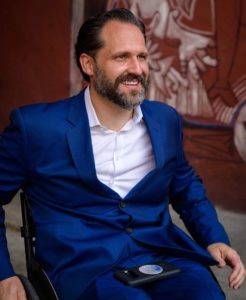
Yannick Benjamin
Benjamin and his wife, Heidi Turzyn, also a sommelier, had their hands full grappling with work issues and their flu-like symptoms for about 10 days, which distracted them from the fact that they couldn’t smell or taste anything.
Like Denning and Ross, as soon as he could, Benjamin began retraining his palate. “This is going to sound weird for a wine person, but I love cologne,” he says. “I would spray my colognes and I couldn’t smell anything, and have Heidi take a whiff, and she couldn’t smell anything. And nothing tasted like anything.”
In April, his senses of smell and taste began to re-emerge, and his energy surged back. By May, he was working out hard. Perhaps too hard. Benjamin, who is parapalegic, only knew something was wrong when he heard a loud crack.
“I called for Heidi, and she took me to Mt. Sinai—which was, excuse me, a shit show because of coronavirus, and she wasn’t allowed in,” Benjamin says. He had fractured the neck of his femur and needed immediate surgery to insert a titanium rod and a few screws to stabilize the injury.
Despite his string of bad luck, Benjamin is managing to keep things in perspective. “Strangely enough, [CNN news anchor] Chris Cuomo got sick around the same time Heidi and I did, and his recovery followed the same pattern,” he says. “Think of all of the money, power, and access he has as a [media personality] and the brother of our governor. And yet he was up one day, down the next, just like we were. When I go through a rough patch, I tell myself, ‘It could be worse.’”
Post-surgery, he’s back to working out, and blind tasting. His taste has fully returned and Heidi’s is at 85 or 90 percent.
“I just know the rest will return for her in time,” Benjamin says. “We’re both trying to look ahead, work hard, and stay positive.”
The invisible glue binding us
Working hard and staying positive may be all any of us can do in the face of so many questions in the months to come. The hospitality industry has been devastated by this pandemic, losing billions in investments and sales, and thousands upon thousands of jobs; each data point in every chart represents real lives that have been transformed by this one pernicious illness.
The idea of losing a career path to COVID-19 is horrific enough. But the loss or diminishment of the ability to smell and taste can have additional, far-reaching emotional and psychological consequences. People who can’t smell or taste often report feelings of isolation and depression, as scent and flavor often serve as the invisible glue binding us through memory and experience to places, loved ones, important events.
Denning recalls her daughter tearing up over a family dinner no one could taste, asking, “What if we can never taste food again? I’m scared I’ll never be able to smell my babies.” Unthinkable.
Thankfully, now that her daughter’s senses have returned, they can joke about that awful moment when she worried about her future babies. But it remains seared in Denning’s memory as a constant reminder to never take even the most minute pleasure or privilege for granted.

